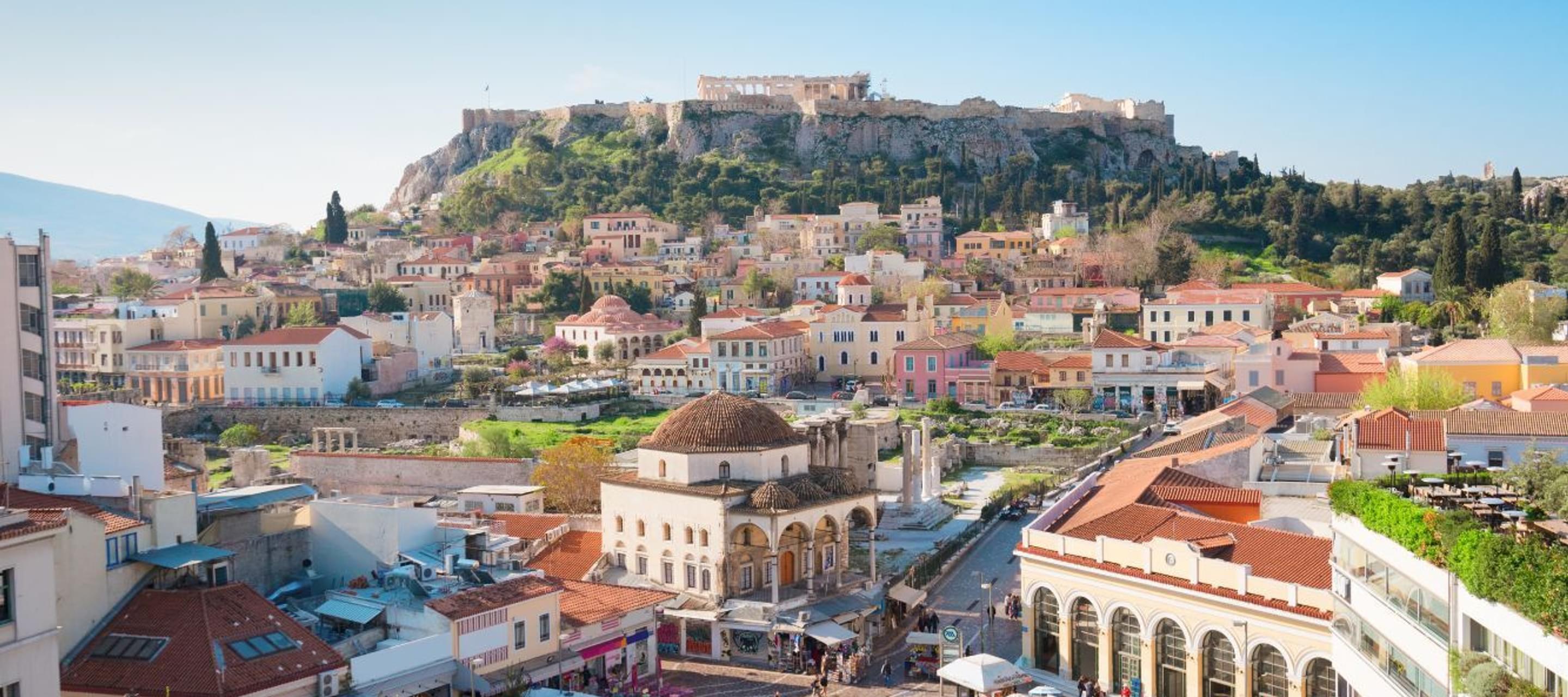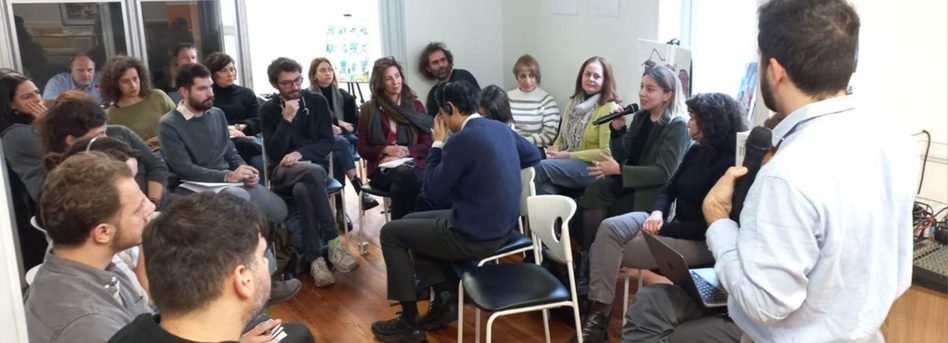Athens: From Ancient Roots to Future Resilience
22 March 2023

Cities are often where people experience the impacts of climate change and of climate action, which can raise living costs and socio-economic inequalities.
In a series of local research cycles, IHRB is spotlighting eight cities, focusing on their built environment decarbonisation and resilience plans. This research series asks: how is each city minimising the negative social consequences of climate action, and maximising the positive impacts that built environment can have for inhabitants and the environment? And what are recommended actions from the government, investors, and the private sector?
Athens summary report
Athens is making slow progress in decarbonising its built environment and embedding resilience, with its nascent efforts lacking a clear focus on equity. The economic crisis has left long-term scars upon the city that limit available resources, calling for creative, bottom-up solutions for a cleaner, greener and fairer city for all.
Athens remains a well-integrated city, with low levels of social segregation compared to other cities in Europe. The worst of the 2009-2018 economic crisis appears to be over, and Greece is now posting strong GDP growth figures and attracting significant investment. The relatively dense city makes planning an inclusive and diverse ‘15-minute city’ easier to imagine in Athens than in cities with sprawling, low-density suburbs. The emergence of civil society organisations and the influence of the EU on developing a culture of evaluation also give cause for optimism.
The report presents a brief overview of the city climate actions and some key human rights risks and opportunities of the transition. It delves into the housing affordability struggle and how building decarbonisation can be harnessed for a fairer distribution of housing benefits. Also, it touches on the topics of social and spatial segregation, participation, and workers’ rights, for instance how the precarious nature of construction jobs prevents upskilling for the green transition. The aim of this research report is to provide evidence for the need of a just and inclusive transition in Athens, and provides recommendations for government, businesses and other built environment stakeholders on possible pathways to accomplish it.
Findings revealed:
- Athens has the potential to adapt to the challenges it faces. An existing strength, that deserves greater attention, is the relatively high degree of social integration compared to many other European cities. Hence, Athens’ diversity and integration are potentially some of the greatest strengths of the city, presenting opportunities for increased social cohesion in the future.
- Greece is now posting strong economic growth rates and attracting record foreign investment, along with the largest Recovery and Resilience Plan funding in the EU relative to the size of the national economy. These investments have already sparked new building projects which promise to be transformative for Athens, ranging from landmark new transport infrastructure to the largest urban regeneration project in Europe, Ellinikon.
- Local authorities along with urban planners of these developments should ensure access for those most vulnerable, due to low incomes, migration status and other factors, as well as ensuring construction workers’ rights are respected. Ultimately, urban transformations present valuable opportunities to build a more inclusive and sustainable city.
Visioning workshop
On 25th January 2024 representatives from academia, government, civil society, NGOs and the private sector gathered at the Higgs incubator in Athens to envision pathways for a just transition in Athens' built environment.

Cities of the future
Visions for a just and climate-resilient built environment
We commissioned young artists in Athens, Lagos, Lisbon, Jakarta, Prague, Copenhagen, Valparaíso and Melbourne to bring the visions of a fairer, greener future for each city to life through visual art pieces that can serve as a unifying vision for a locally-grounded, fairer transitions.

Athens by Eleni Charcharidou
The Building for Today and the Future project
These research summaries are part of The Building for Today and the Future project, which benefits from guidance and insights from its thematic partners including ICLEI - Local Governments for Sustainability, Building and Woodworkers International, and the International Union of Tenants.
The Building for Today and the Future project is made possible with support from Laudes Foundation and Ove Arup Foundation.







